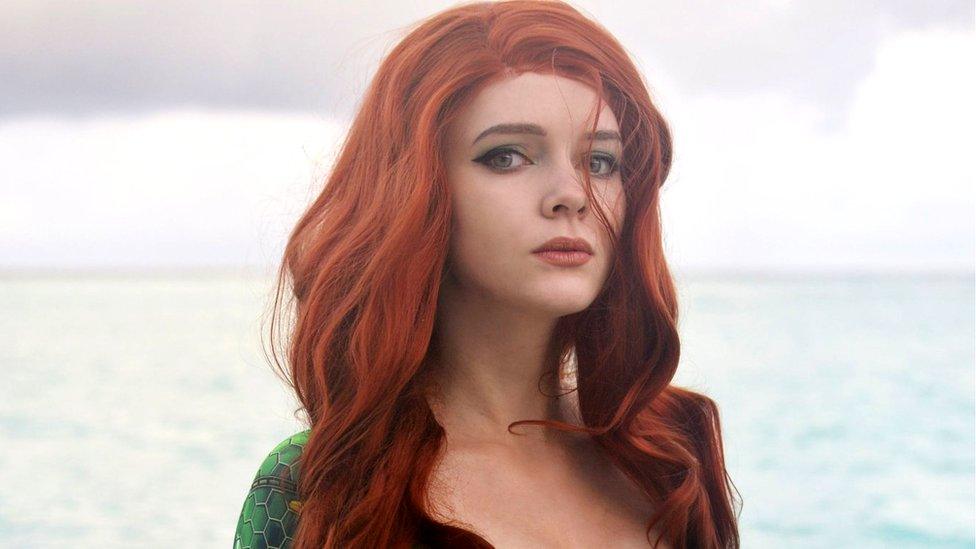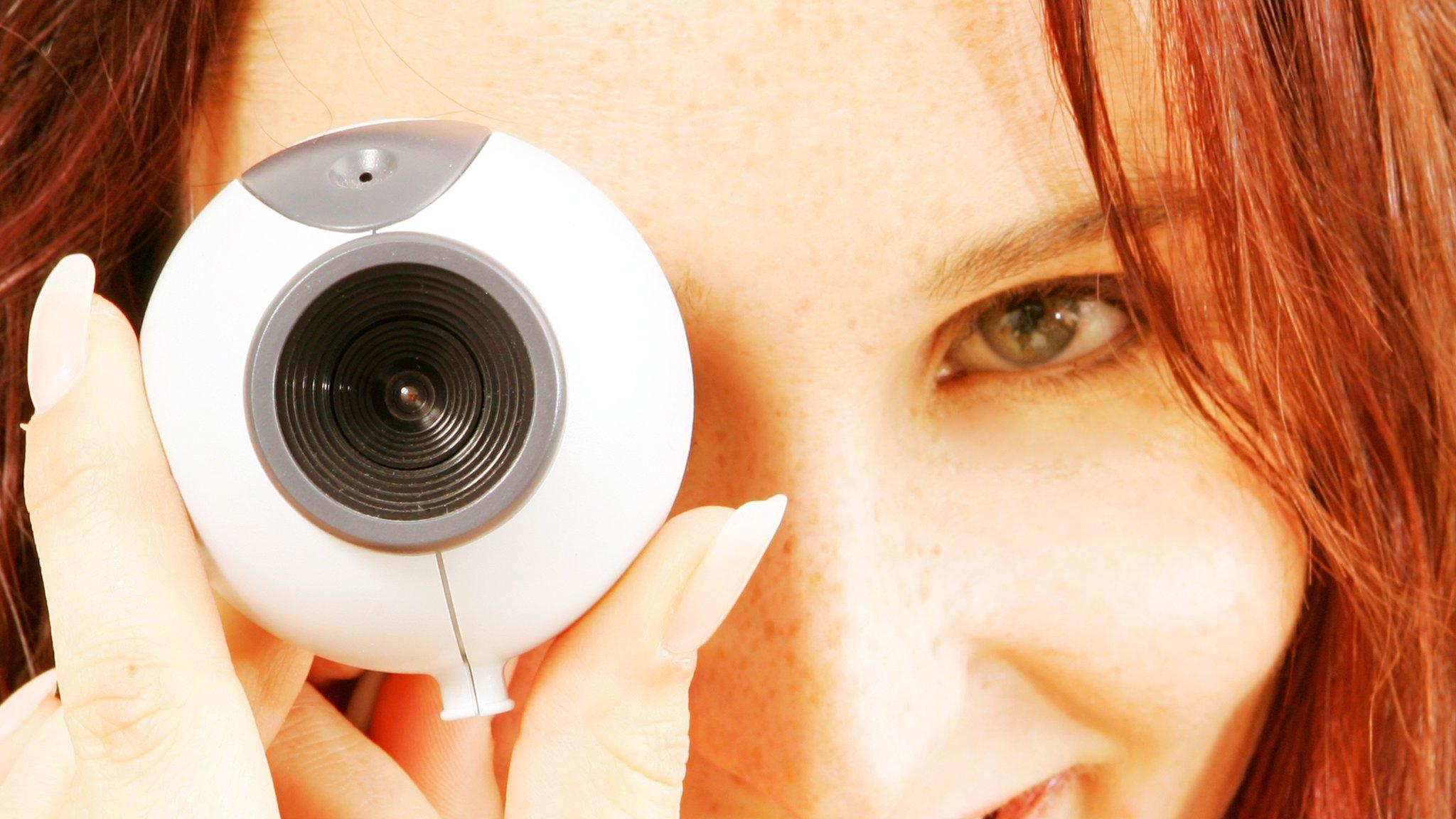Twitch 'hot tub streamer' has ads pulled by streaming site
- Published

One of Twitch's most popular streamers said the livestreaming service has cut her off from advertising revenue, even though she has not broken any rules.
Amouranth is known for her video streams from a hot tub. They've become a divisive topic among Twitch users in recent months.
But swimwear is explicitly permitted under Twitch's own rules.
Amouranth alleged she had been "targeted" because her content "is not advertiser friendly".
It is the latest landmark in a long-running row over so-called "hot tub streamers" and their high profile on Amazon-owned Twitch, which traditionally focused on game-streaming content.
Twitch allows anyone over the age of 13 to use the service, and is popular among teenagers.
But much of the criticism has sexist overtones, with disparaging slang used for female streamers based on what they wear, or claims that some streams amount to "softcore porn".
"An alarming precedent"
Amouranth - whose real name is Kaitlyn Siragusa - said Twitch had indefinitely suspended advertising on her channel, without any notice, or warning that she was breaking any rules.
"Twitch didn't reach out in any way whatsoever," she said in a series of tweets, external, adding that she only found out about the change when she noticed ad revenue had disappeared.
"This is an alarming precedent and serves as a stark warning that although content may not ostensibly break community guidelines or terms of service, Twitch has complete discretion to target individual channels and partially or wholly demonetize them for content that is deemed 'not advertiser friendly'," she said.
But "there is no known policy for what results in a streamer being put on this blacklist", she added.
Twitch policies say that "sexually suggestive content" is banned, but its examples include suggestive camera framing, groping certain body parts, or "erotic dances, such as those involving stripping".
In a stream on Wednesday after the ban, Amouranth told her viewers that her ad revenue "was making me $30,000 a month", and was much higher than the amount she received from direct donations from viewers.

Gaming news site Kotaku, which has been reporting on the hot tub controversy for months, reported that Twitch has never demonetised a streamer this way before, external, and that this move sets a new precedent for the site.
The topic has been debated by both streamers and their viewers, with some fearing that sexually suggestive content such as hot tub streams could make Twitch a less attractive platform for advertisers, and thus hurt earnings across the board.
In a stream in April, Amouranth said: "I will agree, long-term, [it is] probably damaging for Twitch's ad revenue. However, if they allow it, they allow it, you know? It's their choice. It is what it is."
Advertising is only paid to Twitch streamers who are part of its partner programme, which it can remove people from at any time. The site can also suspend accounts "at any time for any conduct that we determine to be inappropriate or harmful".
But neither of those sanctions appear to have been used in this case.
The site had already re-drawn its rules on sexually suggestive content and partial nudity last year, external, after a years-long similar row over women's cleavage on live streams.
Twitch has been contacted for comment on Amouranth's advertising suspension.
Related topics
- Published1 September 2020

- Published2 March 2021

- Published9 December 2017
